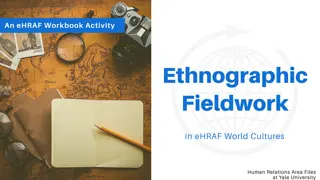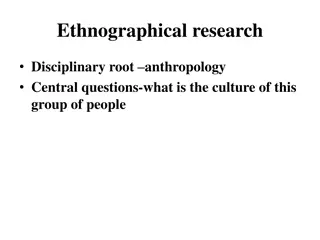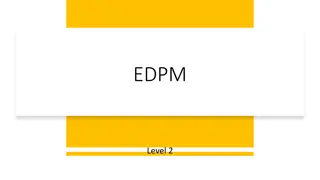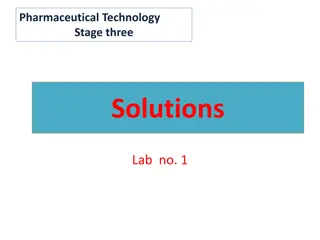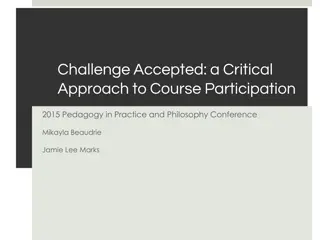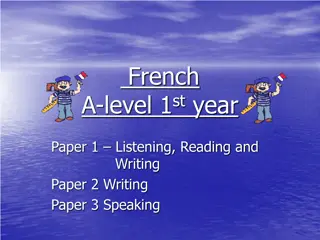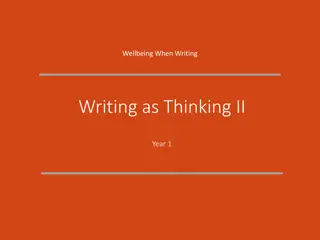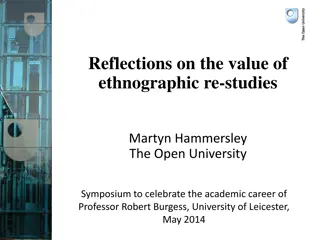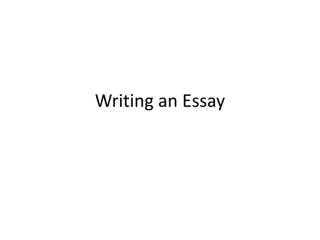Overcoming Challenges in Ethnographic Writing: Practical Solutions for Paper 3
Navigate obstacles in ethnographic writing with solutions such as redefining what's interesting, managing time effectively, building relationships of trust, and embracing the unfamiliar. Learn how to approach community studies, overcome stress, and handle discomfort in research interactions.
Download Presentation

Please find below an Image/Link to download the presentation.
The content on the website is provided AS IS for your information and personal use only. It may not be sold, licensed, or shared on other websites without obtaining consent from the author. Download presentation by click this link. If you encounter any issues during the download, it is possible that the publisher has removed the file from their server.
E N D
Presentation Transcript
QUESTIONS AND CONCERNS ABOUT ETHNOGRAPHIC WRITING A brown bag session of challenges for Paper 3.
CHALLENGE #1: IM HAVING TROUBLE FINDING AN INTERESTING COMMUNITY TO STUDY. WHAT DO I DO?
SOLUTIONS Expand your definition of interesting. Making the familiar strange. Pull back the layers. Write/present in interesting ways. Resources in your area, what makes you unique, your major/job, etc.
CHALLENGE #2: IM AM SO STRESSED OUT AND OVERWHELMED THAT I CANNOT FIND THE TIME TO OBSERVE MY GROUP. WHAT DO I DO? HOW CAN I MANAGE MY TIME BETTER?
SOLUTIONS One step at a time. Get organized write a research plan. Find moments of silence for relaxation, concentration and creativity. Use writing rituals that allow you to selectively and temporarily shut out the daily world (Wyche 53).
CHALLENGE #3: I FEEL UNCOMFORTABLE ASKING PEOPLE THAT I DON T KNOW IF I CAN RESEARCH THEM. WHAT DO I DO?
SOLUTIONS Find an in by connecting with one person in the group. Give back (reciprocity), possibly through this project. Develop a relationship of collaboration and trust (Kahn 15). Making the strange familiar.
CHALLENGE #3: I FEEL UNCOMFORTABLE ASKING PEOPLE THAT I KNOW IF I CAN RESEARCH THEM. WHAT DO I DO?
SOLUTIONS Making the familiar strange. Seeing people in new and different ways. Embrace your inner nerd/scholar/writer. Develop a relationship of collaboration and trust (Kahn 15).
CHALLENGE #4: IM AFRAID THAT I WONT BE ABLE TO STAY OBJECTIVE/UNBIASED IN MY RESEARCH. WHAT DO I DO?
SOLUTIONS Being distanced and being an outsider mean something different than being objective. You can t help but see cultures in terms you re comfortable with (Kahn 187). Guard against the colonial critique - acknowledge your subjectivity. Recognize your biases (ethics). Ethnography is not a science.
CHALLENGE #5: I DONT KNOW WHAT TO WRITE DOWN WHEN I TAKE FIELD NOTES. WHAT DO I DO?
SOLUTIONS The more, the better. Thick description and specificity Focus on communication and language (tone, body language, direct quotations etc.)
MORE ON COLLECTING DATA Other methods? Look at the model of field notes. Collect other texts (posters, newspapers, menus, etc.) from the community. Don t worry about significance until you reach the analysis stage. Look at the questions for analysis on the assignment sheet.
CHALLENGE #6: IVE NOTICED MULTIPLE GROUPS WITHIN MY DISCOURSE COMMUNITY. CAN I COMPARE AND CONTRAST THESE SUB- GROUPS?
SOLUTIONS Good sign recognize the levels of community Depth of analysis overrides breadth Compare and contrast the literacies in your group with academic literacies
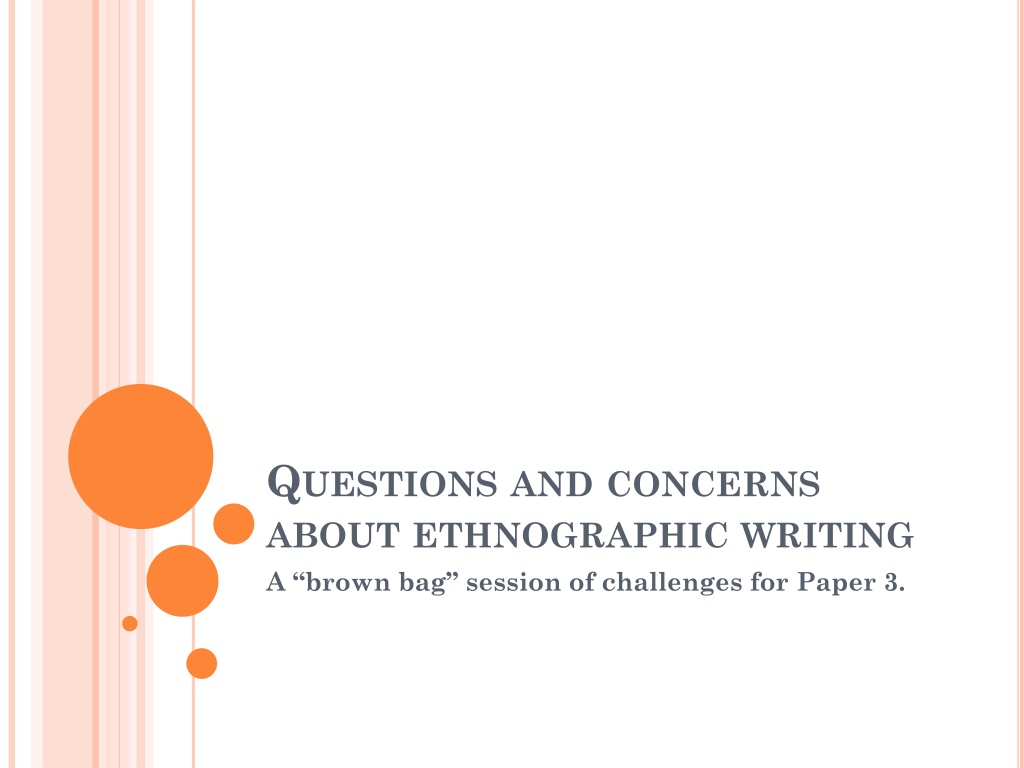
 undefined
undefined

















